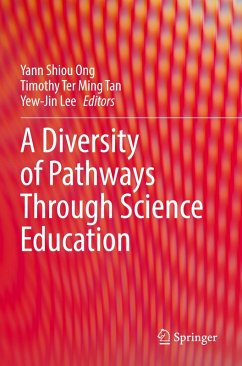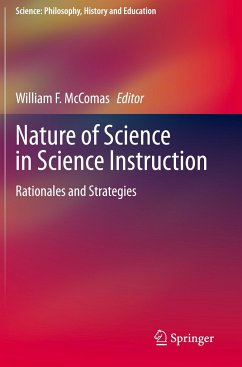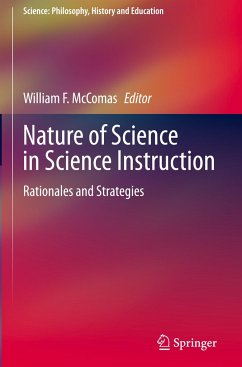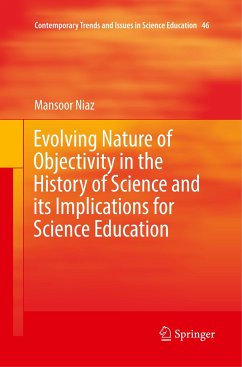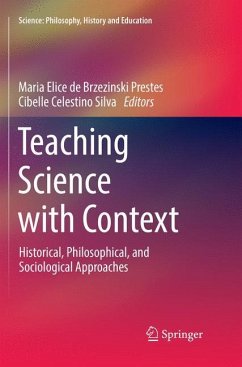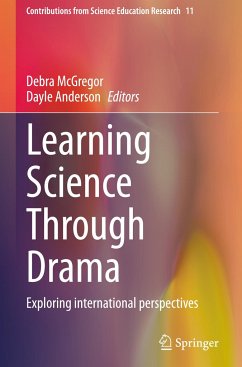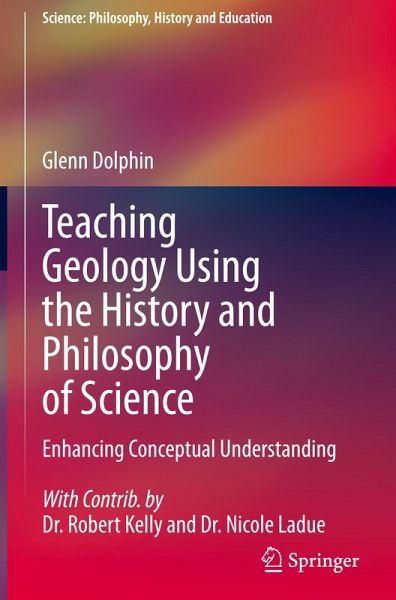
Teaching Geology Using the History and Philosophy of Science
Enhancing Conceptual Understanding
Mitarbeit: Kelly, Robert; Ladue, Nicole

PAYBACK Punkte
49 °P sammeln!
This book provides a case study on how to design and build an introductory geology course for non-science majors. The book presents a foundation with the status of geoscience education and research in geoscience conceptual development as a backdrop for the design process. It then describes the instructional goal-setting process and development of the structural components of the course based on the determined goals. The book presents the three historical narratives (the earth is a historical entity, the earth is very old, and the earth is dynamic) that form the foundation of instruction. It al...
This book provides a case study on how to design and build an introductory geology course for non-science majors. The book presents a foundation with the status of geoscience education and research in geoscience conceptual development as a backdrop for the design process. It then describes the instructional goal-setting process and development of the structural components of the course based on the determined goals. The book presents the three historical narratives (the earth is a historical entity, the earth is very old, and the earth is dynamic) that form the foundation of instruction. It also describes examples of the implicit, explicit, and reflective treatments of the nature of science to help student develop a better sense of the process of geology. Finally, the book gives preliminary results from some innovative approaches to research on student learning within the domains of geological content knowledge and NOS content knowledge within the course.





